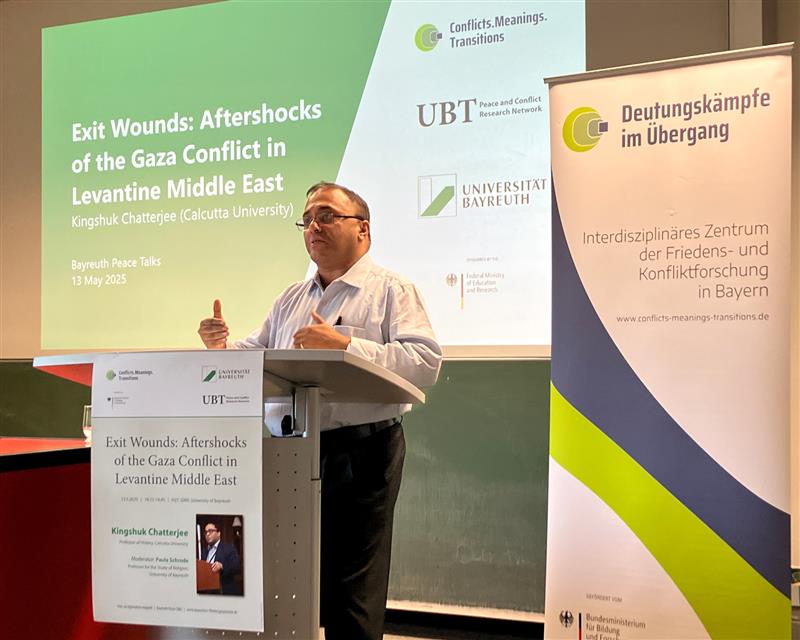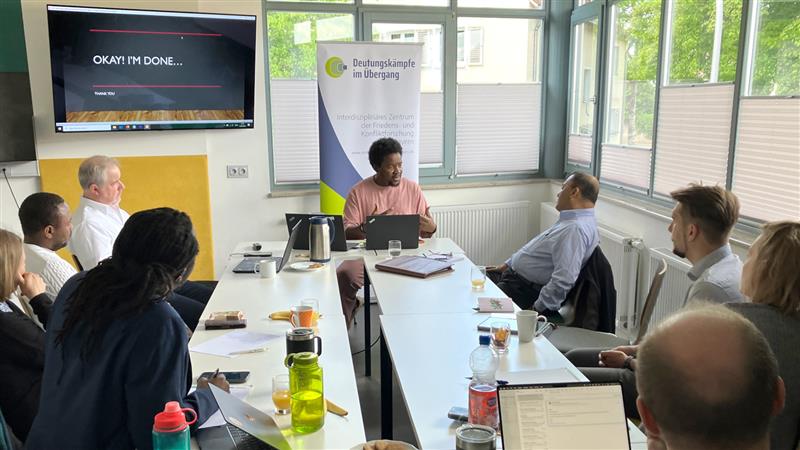As part of our BMBF-funded research network conflicts.meanings.transitions, we were honored to host Prof. Kingshuk Chatterjee at the University of Bayreuth in May 2025. A distinguished historian from the University of Calcutta, Prof. Chatterjee brings deep expertise in conflict, language, and the Middle East. Over the course of two days, he enriched our discussions by offering sharp historical insights and fresh perspectives on the complex ties between ideology, politics, and communication.
Regional Shifts and the Aftermath of the Gaza War
On 13 May 2025, Prof. Chatterjee delivered a public lecture as part of the Bayreuth Peace Talks series. Titled Exit Wounds – Aftershocks of the Gaza Conflict in Levantine Middle East, the talk focused on the long-term consequences of the Gaza war that began in October 2023. He thoroughly analyzed the shifting dynamics involving Hamas, Hezbollah, Iran, and Israel, while also highlighting the growing uncertainties across the region.
Although some commentators expressed cautious optimism about renewed stability, Chatterjee urged for restraint. According to him, the conflict had left behind numerous “exit wounds” — unresolved issues with the potential to ignite further unrest. Among these are Syria’s stalled reconstruction, Lebanon’s political deadlock, Gaza’s ongoing humanitarian crisis, and the fragile nature of nuclear negotiations with Iran. The lecture concluded with a Q&A session moderated by Prof. Paula Schrode, which allowed for direct and enriching interaction with the audience.

Workshop on Conflict, Language, and Political Ideology with Chatterjee
On 15 May, Prof. Chatterjee joined PhD candidates and postdocs for an engaging workshop titled Language, Ideology, and the Dynamics of Conflict: Unpacking Political Behaviour. Together, they explored how language shapes conflict and influences political behavior across various contexts.
Throughout the day, participants presented their ongoing research projects, received constructive feedback, and discussed a wide range of empirical and theoretical challenges. Moreover, the small-group format fostered an open and informal environment that encouraged candid dialogue. As a result, participants walked away with valuable insights, new perspectives, and meaningful academic connections.

We sincerely thank Prof. Kingshuk Chatterjee for sharing his knowledge on conflict, language and the Middle East. Likewise, we appreciate all participants for their active engagement and thoughtful contributions.

